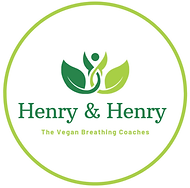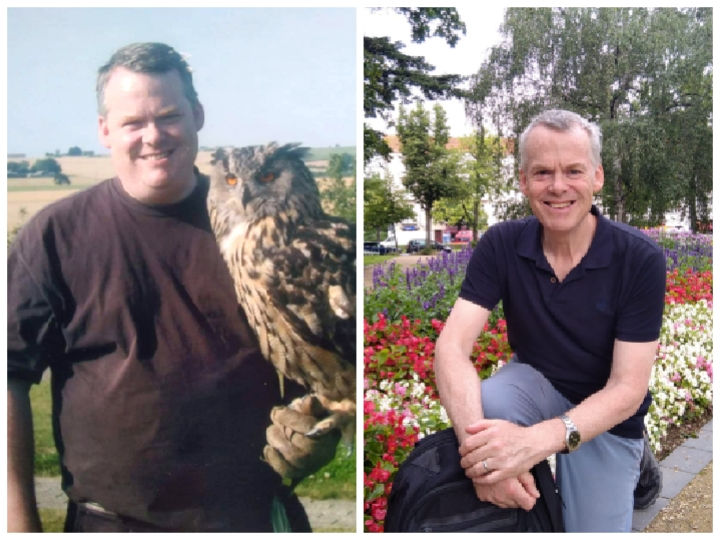Annette's Favourite Foods
- Henry & Henry

- May 25, 2019
- 4 min read
Updated: May 26, 2019
Do you know many people who eat mostly raw food on a daily basis? Most people don't, and that may be why there's some curiosity with respect to what Graham and I eat. Whilst we love the decadent desserts and the dense foods that we make using our dehydrator, our day to day fare is typically simpler and lighter, but it hasn't always been like that.
My first conscious engagement with natural, and some raw food happened almost 20 years ago when I used food as my medicine to heal endometriosis. The success of it amazed me. All I'd done was to significantly reduce processed food, cut out dairy, eat more natural food, and include 'something raw' with every meal. And I got better. I would hope this is encouraging to anyone who would like to improve their health, because it is certainly achievable. I was still eating some meat at this point, still eating regular bread, still eating some other processed foods and I still got better! I'm not putting this forward as a plan for others to follow; everyone has their own considerations and since that time I've had my own additional 'considerations' to take onboard so I've needed and wanted to evolve further. I'm simply suggesting that switching out some processed foods for more natural ones and figuring out if there are foods that are best left out altogether can have profound and positive effects.
It's relevant to talk about 'evolving'. The past two decades have seen constant tweaks and changes to what I and Graham eat. We share our meals and therefore eat mostly the same things. We've also looked at other aspects of our food, such as its impact on the planet and other living beings. More recently, I've looked to food to help me recover from another illness, and this has led to me 'cleaning up my act' even more and once again, I'm struck by the potency of natural food to bring the body back into balance. I ended 2017 with the flu and spent most of last year with chronic fatigue. One year on, I'm virtually as lively and healthy as I was before it all started.

So what do I eat? It's quite simple, literally: a high proportion of fresh fruit, and a lot of fresh vegetables usually in a salad of some kind plus some nuts, seeds and one or two other things. Simple food. We've all become so used to putting value on complex dishes (think Master Chef), that we've pretty much side-lined food in its natural state and maybe even lost the ability to really enjoy it? I'm only truly realising now that the rather mundane word 'salad' belies the variety and fabulousness of combing different vegetables, herbs and even fruits, with a beautiful tasty dressing made with a range of (mostly) wholefoods. So if lunch and dinner are often salads, what about breakfast? Breakfast is a smoothie, almost always, but it's never identical from one day to the next. We make our smoothies with a good array of whatever fruits we have available - bananas are particularly good, and we love it when it's berry season, but pears work well, too. Our smoothies are usually dark in colour, dark green, dark blue, dark purple, depending on what we include. We're fond of adding some of the 'superfood' greens such as spirulina, barley grass, wheatgrass and sometimes other powders too, such as medicinal mushrooms or maca. Additionally, we frequently include spices; ginger, turmeric, cinnamon, black pepper. And that's enough for a very satisfying breakfast.
Do I eat cooked foods? Yes, perhaps a little more in the winter although we're both very fond of beans and pulses so we frequently have a pan of beans or lentils on the go. Steamed vegetables are a great addition to winter salads and baked sweet potatoes are still a favourite lunch. I stopped eating bread last year. Even though we were making lovely sourdough bread something, the gluten? was proving very problematic for me and stopping it had an instantly positive effect. However, a trip to Berlin earlier this year introduced us to a gluten-free seed bread which we've since replicated. This works well, and means we're creating something that really is based on the wholefood ethos that we've come to value.
I said earlier that I'd 'cleaned up my act' which is perhaps not the best phrase to use, but does at least indicate that I've attended to some of the details of my diet in respect of the recovery I'm working towards. And it's mostly in the detail where there are differences between what Graham and I eat and drink. I no longer have stimulating drinks, not even green tea (this eliminating of stimulants should theoretically apply to chocolate, but cutting it down seems to be the most I'm willing to do .. it's raw chocolate, it's delicious and I'm not perfect, nor do I aim to be!) As a lifelong slim person, I've never given a second thought to fat, but all recent indications have led to me needing to consider it in respect of the viral load in my liver; for a while I could feel that it was inflamed just by palpating the area and that was a sobering experience. I've now drastically reduced my fat intake to comprise primarily small quantities of the wholefoods from which oils are typically derived; seeds, nuts, avocados, olives, coconut flesh. I use the extracted oils only very sparingly if at all. I'm surprised that this has worked so well and even provided me with an unforseen advantage; in order to feel as satiated as I used to, I need to eat more! For someone who likes her food, that's a sheer pleasure. And I've finally stopped even pretending that I might maybe occasionally like to drink alcohol; I don't like it, and I don't think I ever really have.
None of the above is a recommendation, especially as my current food choices are coloured by my strong desire to promote recovery. But if what I have written proves to be a source of inspiration to make some changes and allow for transition and evolution then I couldn't be happier. I hope in turn, that anyone who meets us will know that this is essentially a snap shot in time and that in say a year from now, we may have made more tweaks and changes as we discover more, both from what we research and study as well as from listening to our bodies and letting them tell us what we need.



)_20230830_134131_0000.png)



Comments